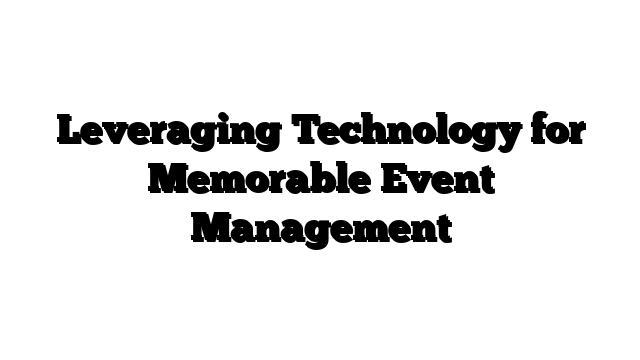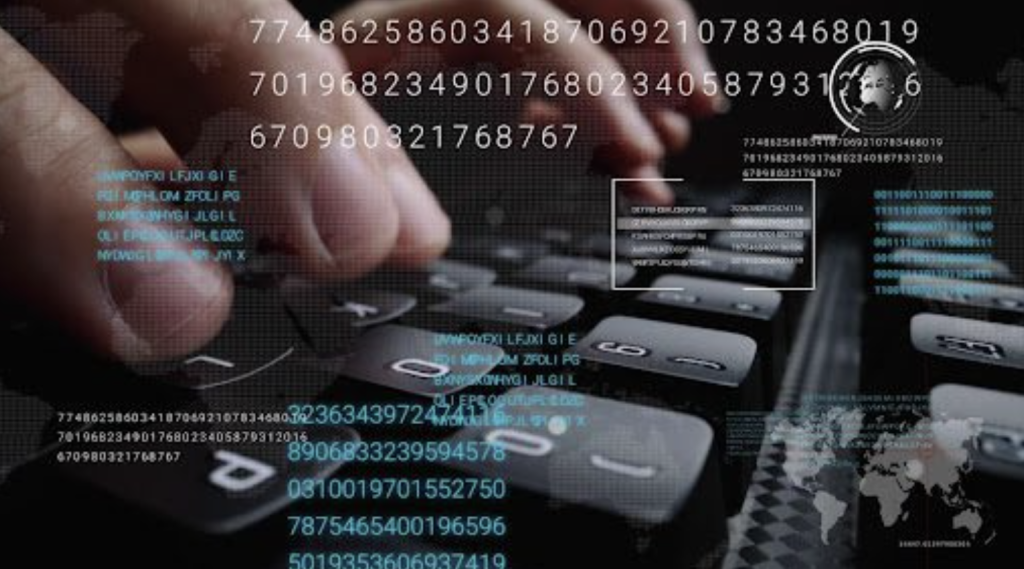Key Takeaways:
- Digital solutions have revolutionized event design and management, enhancing experiences for all parties involved.
- Event design software brings crucial features like user-friendliness, integration, and analytics to the forefront of event planning.
- Personalization, real-time collaboration, and a focus on sustainability are facilitated by technology, shaping the future of events.
Table of Contents:
- Introduction to Event Design and Planning
- The Digital Evolution in Event Planning
- Key Features of Top-notch Event Design Software
- Customization and Personalization in Event Software
- Improving Collaboration Among Event Professionals
- Streamlining Logistics with Event Planning Platforms
- Enhancing Attendee Engagement with Interactive Technology
- Sustainability and Eco-friendly Event Management through Tech
- Assessing Event Achievement with Software Analytics
- Conclusion
Introduction to Event Design and Planning
The art of event design and planning is pivotal in creating moments that resonate with participants long after they conclude. With the advent of sophisticated digital tools, event management has undergone a metamorphosis, giving rise to experiences that are both awe-inspiring and deeply personal. Looking to the future, an innovative event layout tool is integral to crafting memorable occasions. These solutions support planners by providing comprehensive and intuitive platforms for orchestrating every detail of an event, from attendee engagement to venue design, with previously unattainable finesse.
The Digital Evolution in Event Planning
Embracing the digital revolution, the event planning sector has transitioned from traditional methods to embracing the capabilities of event management software. This paradigm shift has enabled planners to harness the power of technology to manage their events more effectively, streamlining processes that were once highly manual and time-consuming. Online tools offer scalability and versatility, easily accommodating various event sizes and types. The digital evolution in event planning is ongoing, and professionals who adopt these sophisticated technological tools are redefining what it means to create engaging and successful events.
Key Features of Top-notch Event Design Software
Modern event design software is characterized by a constellation of features designed to simplify the intricacies of event management. One of the most significant is the user-centered design, which ensures that technology complements rather than complicates the planning process. This is followed closely by integrating various platforms, allowing seamless collaboration and communication between different event components. Insightful reporting and sophisticated data analytics also give event planners a comprehensive overview of their event dynamics and specific details to help them fine-tune subsequent events for maximum success.
Customization and Personalization in Event Software
Each event is as unique as its attendees, making customization an essential aspect of today’s event management software. The ability to personalize experiences to fit attendees’ specific desires and expectations is paramount in modern event planning. Advanced software solutions offer many customization options, allowing planners to craft unique experiences that resonate with participants while streamlining attendee management. This level of personalization powerfully contributes to the attendee’s satisfaction and, ultimately, the overarching success of the event.
Improving Collaboration Among Event Professionals
Effective collaboration is the lifeline of any well-executed event. Event design software nurtures this by providing a unified platform where all members of an event team can converge to share insights, updates, and critical information. This improved communication paradigm ensures everyone is on the same page, minimizing misunderstandings and maximizing productivity. Real-time updates and cloud-based technologies have further enhanced this collaborative spirit, allowing event professionals to work in unison regardless of their physical location.
Streamlining Logistics with Event Planning Platforms
The logistical aspects of event management can be overwhelming, but modern event planning platforms have elegantly simplified these complexities. These robust solutions offer modules for every aspect of event logistics, from vendors and suppliers to registration and ticketing. Such systems ensure that all elements are synchronized, resulting in a well-oiled event machinery where potential issues are anticipated and resolved before they materialize, leading to a smooth and trouble-free event experience for both organizers and attendees.
Increasing Participation of Attendees through Interactive Technology
Engagement is the currency of memorable events, and interactive technology has become the mint. Event software now frequently comes equipped with interactive elements that turn passive attendees into active participants. Features such as real-time polling, question-and-answer sessions, and social media integrations reinvigorate the event atmosphere while providing valuable insights into the attendees’ minds. These dynamic tools keep the audience involved and invested, crucial to the staying power of the messages conveyed during the event.
Sustainability and Eco-friendly Event Management through Tech
Environmental stewardship is increasingly at the forefront of the public’s consciousness, and event management is no exception. Sustainable planning is made achievable through event software that reduces dependence on physical resources, like paper, thereby diminishing the environmental footprint of events. Gigabytes replace gallons as data storage and dissemination turn digital, reflecting the increasing integration of eco-friendly practices—a movement supported by resources promoting sustainable event management. Including analytical tools further empowers planners to measure and manage their sustainability efforts, leading to greener events appreciated by both the planet and participants.
Assessing Event Achievement with Software Analytics
Assessing an event’s success is no small task; however, software analytics simplify this process by providing objective data and actionable insights. Event software packages often include robust analytical features that track attendance figures, engagement levels, and other vital metrics. With the help of this kind of data, event organizers may accurately assess the impact of their events and make well-informed decisions for future enhancements. Being equipped with these insights, professionals can refine their strategies, ensuring each event is more successful than the last.
Conclusion
As event professionals look to the horizon, the future of event design and technology appears filled with unbounded possibilities. The integration of state-of-the-art digital solutions is set to continue driving innovation in this field, offering the means to achieve unprecedented attendee satisfaction and event efficiency. The adoption and mastery of these technologies position planners to surpass current standards and set new benchmarks within the industry, ensuring a legacy of captivating and trendsetting events for years to come.
James Martin is a passionate writer and the founder of OnTimeMagazines & EastLifePro. He loves to write principally about technology trends. He loves to share his opinion on what’s happening in tech around the world.


